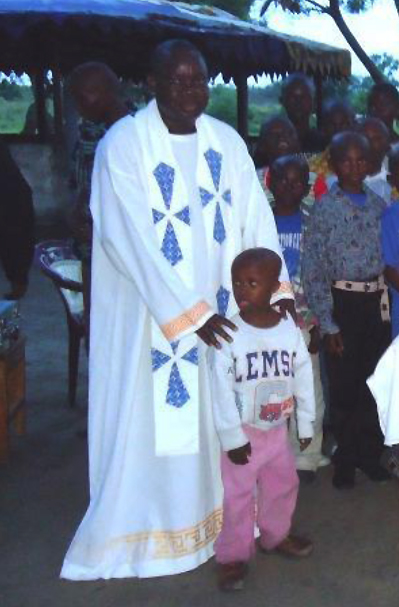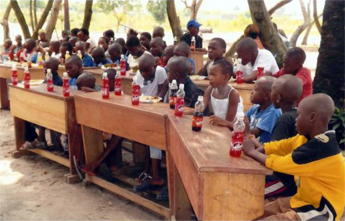 The Democratic Republic of the Congo is the second largest country in Africa and is one of the poorest countries in the world. It ranks 186th on the Human Development Index--the lowest ranking of all countries. Since the 1990's, long-standing civil conflict has devastated the DR Congo, killing millions of people. Forty-seven percent of these deaths were children under the age of five. The prevalence of rape and violence here has been described as the worst in the world.
The Democratic Republic of the Congo is the second largest country in Africa and is one of the poorest countries in the world. It ranks 186th on the Human Development Index--the lowest ranking of all countries. Since the 1990's, long-standing civil conflict has devastated the DR Congo, killing millions of people. Forty-seven percent of these deaths were children under the age of five. The prevalence of rape and violence here has been described as the worst in the world.
The Democratic Republic of the Congo is home to roughly 800,000 orphaned and other disadvantaged children, many of whom are being forced to join rebel groups and participate in the violent conflicts.
Grave violations are taking place, including massacres of entire villages by armed groups, mass rape, abductions, exploitation and abuse, and child recruitment and use in armed forces and groups. At the same time, malnutrition has surpassed emergency levels; nationally, one million children suffer from severe acute malnutrition (SAM). (UNICEF, 2012 p.1)
OFA has one partner in Democratic Republic of the Congo: Centre Elembo
Centre Elembo
 Fr. Blaise Muswar, Director
Centre Elembo is currently providing complete care to 58 children and young people living on site. During the school terms, children travel from the countryside to the Centre to attend primary school. The children receive help with homework after school and play sports and various games. They are studying English and taking a class on being Christian in order to understand the passion of living with Christ and in Christ.
Fr. Blaise Muswar, Director
Centre Elembo is currently providing complete care to 58 children and young people living on site. During the school terms, children travel from the countryside to the Centre to attend primary school. The children receive help with homework after school and play sports and various games. They are studying English and taking a class on being Christian in order to understand the passion of living with Christ and in Christ.
Two construction projects were completed in 2017. Thanks to our generous donors, Centre Elembo now has a working well on the property after over two years hauling water from a nearby river. The Passionist Community of priests donated solar panels, wiring and light fixtures giving Centre Elembo light for the first time.
 OFA is now assisting 16 young people in their final year of secondary school as they prepare to take state exams and write dissertations. They will graduate in the summer of 2018 after spending the final four years of secondary school in intensive training for their chosen trade.
OFA is now assisting 16 young people in their final year of secondary school as they prepare to take state exams and write dissertations. They will graduate in the summer of 2018 after spending the final four years of secondary school in intensive training for their chosen trade.
Sources:
- Rural Poverty Portal. Rural poverty in the Democratic Republic of the Congo. http://www.ruralpovertyportal.org/country/home/tags/dr_congo (accessed Oct. 31, 2013).
- The World Bank. Congo, Dem. Rep. http://data.worldbank.org/country/congo-dem-rep (accessed Oct. 31, 2013).
- Wikipedia. Democratic Republic of the Congo. http://en.wikipedia.org/wiki/Democratic_Republic_of_the_Congo (accessed Oct. 31, 2013).
- UNICEF. (2012). Unicef Humanitarian Action Update. Democratic Republic of the Congo. 1-10. http://www.unicef.org/hac2012/files/UNICEF_DRC_Humanitarian_Action_Update_2012.pdf (accessed Dec. 7, 2013).
- UNAids. Democratic Republic of the Congo. http://www.unaids.org/en/regionscountries/countries/democraticrepublicofthecongo/#2 (accessed Oct. 31, 2013).
- Cornerstone Global Associates: Conflict Orphans in the Democratic Republic of the Congo. http://blog.cstoneglobal.com/?p=63 (accessed Oct. 31, 2013).